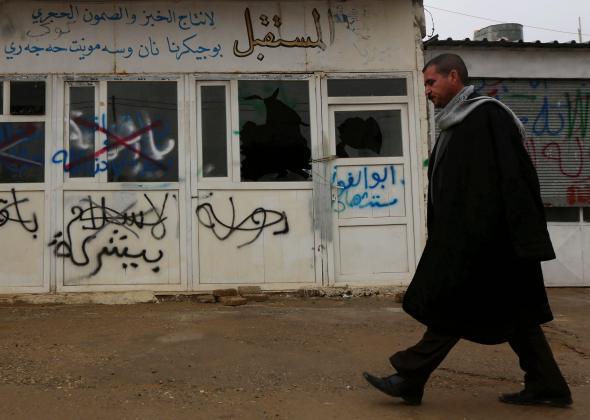“Cute” isn’t a word you read much in coverage of the bloody insurgency that has overtaken Iraq and Syria in recent months. But Anne Barnard and Tim Arango of the New York Times report today that aid workers in refugee camps in Lebanon have taken to referring to people who support ISIS, locally known as Daesh, as “Dawoosh,” or “cute little Daesh.”
Given ISIS’s uncompromising ideology, it might seem strange that it has attracted casual supporters. But the emergence of the Dawoosh phenomenon underlies the discouraging fact that the group is winning some hearts and minds not through the messianic religious goals that have gotten most of the attention internationally or its genocidal brutality, but by aligning itself with the grievances of Sunnis in Iraq and Syria.
ISIS, as a distinct movement, took many by surprise with the speed of its emergence last year, but it drew on grievances and political undercurrents that date back to the sectarian violence that erupted during the U.S. occupation in the mid-2000s—and perhaps even some older ones. On The Intercept yesterday, former U.S. counterterrorism intelligence officer Malcolm Nance looked at the role of former members of Saddam Hussein’s Baath party—“former regime loyalists,” in U.S. military parlance—in ISIS’s leadership. The presence of FRLs in ISIS is not news, but Nance argues that ISIS itself is “essentially a Baathist-organized amalgam of virtually every Sunni tribal and jihadist insurgent group the United States has fought since April 2003.” So it’s not surprising that many people who supported these previous incarnations at least have some sympathy for ISIS.
It’s still possible ISIS could collapse from within as the coalition manages to deprive it of money and locals get fed up with the wanton brutality of its governance, but for now, many in the region don’t seem to view it as significantly worse than the governments in Baghdad and Damascus. This is likely a big part of the reason that months of airstrikes haven’t take much of a bite out of the group’s territory and why the number of ISIS fighters that have been killed isn’t a particularly good measure of progress. The sympathies of the “cute little Daesh” contingent are likely to be far more important.
